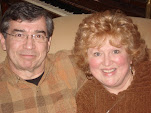What about liturgy?
In the words of www.wikipedia.com, “A liturgy comprises a prescribed ceremony, according to the traditions of a particular group or event.”
Actually the English word “liturgy” comes from the Greek λειτουργία which refers to service rendered for a god (or, for God).
Many denominations follow a prescribed litury in their weekly worship services. Anglicans, Episcopalians, and Roman Catholics would be among those whose worship orders are ancient and familiar to their regular congregants.
Even within the “free” church where spontinaeity or at least lack of prescribed or traditional liturgy has often been a high value, liturgy nevertheless exists. Often a rather predictable “order of service” is followed without deviation week after week: song, prayer, song, song, announcements and offering, song, special number, sermon. The order may not be found in The Book of Common Prayer, but its elements may be more rigidly adhered to than a Lutheran collect during Advent.
How sad that I have too often viewed the traditions of other groups as unbiblical or inferior either because they were unfamiliar, because I was ignorant of their origin or purpose, or because I unnecessarily associated them with some group with whom I differed.
I am very embarrassed that for many years of my ministry I did not encourage the use of “the Lord’s Prayer” in our worship services, because some suspect “liturgical” church regularly “chanted” it’s syllables. "Vain repetition" was my horribly judgmental analysis. I rejected the use of that glorious prayer because of its suspicious association. This in spite of the fact that it’s words are inspired Scripture given by the Lord Jesus for the use of His followers (Matthew 6).
Recently, I have been enriched by keeping The Book of Common Prayer by my bedside to read before I fell asleep. The depth of many of its ancient prayers has challenged the shallowness of many of mine. Praying them as my own has strengthened my prayer life, much like praying the Biblical prayers of David or Paul.
“Most merciful God, we confess that we have sinned against thee in thought, word, and deed, by what we have done, and by what we have left undone. We have not loved thee with our whole heart; we have not loved our neighbors as ourselves. We are truly sorry and we humbly repent. For the sake of thy Son Jesus Christ, have mercy on us and forgive us; that we may delight in thy will, and walk in thy ways, to the glory of thy Name. Amen.”
“Lord Jesus Christ, who didst stretch out thine arms of love on the hard wood of the cross that everyone might come within the reach of thy saving embrace: So clothe us in thy Spirit that we, reaching forth our hands in love, may bring those who do not know thee to the knowledge and love of thee; for the honor thy Name. Amen.”
Subscribe to:
Post Comments (Atom)


1 comment:
I am a Methodist & our founder, John Wesley, encouraged the use of prewritten prayer as a tool of going to God with good words. Our Sunday School class is currently studying a book that breaks The Lord's Prayer down line by line & it is a powerful prayer that we are priveleged to have been taught. Good thoughts!
Post a Comment